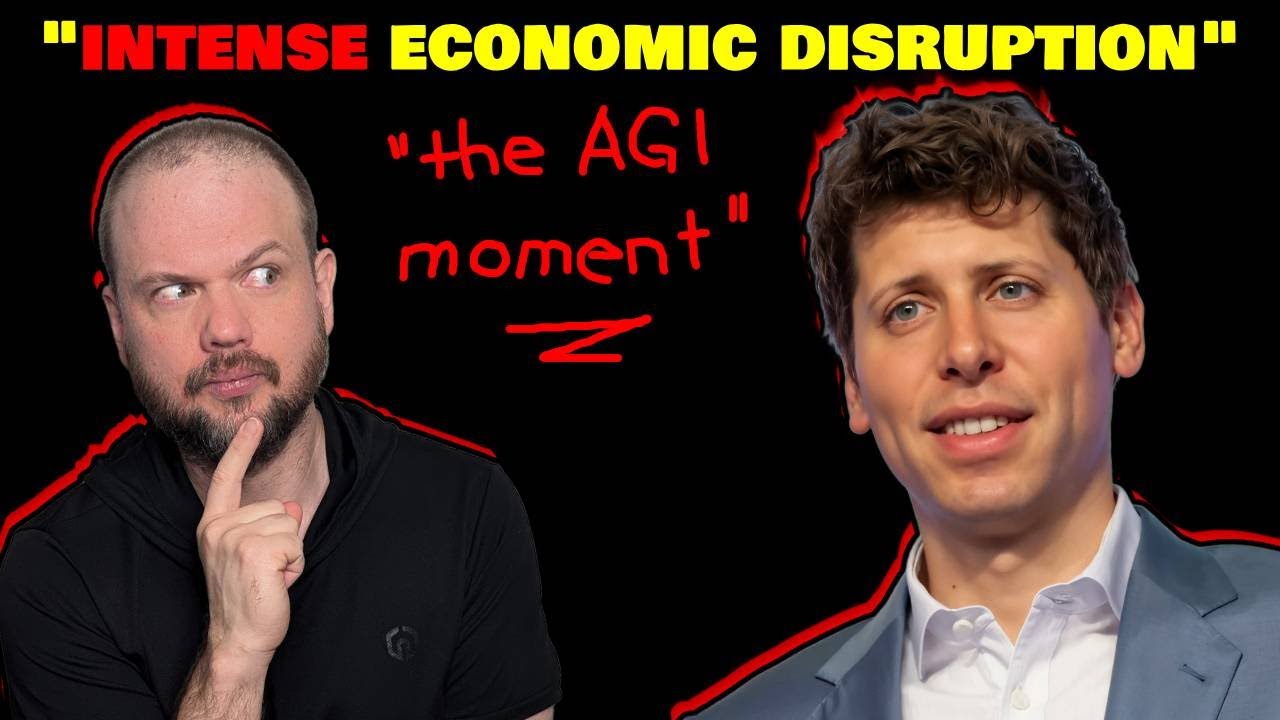In a recent interview, Sam Altman, CEO of OpenAI, expressed optimism about achieving artificial superintelligence (ASI) within a few years, refuting claims of a slowdown in AI progress and emphasizing the ongoing collaboration with Microsoft despite some operational challenges. He also addressed the implications of reaching artificial general intelligence (AGI), the lawsuit from Elon Musk, and the need for evolving copyright frameworks to fairly compensate content creators in the context of AI training.
In a recent interview, Sam Altman, CEO of OpenAI, discussed several pressing topics surrounding artificial intelligence, including the timeline for achieving artificial superintelligence (ASI), the ongoing speculation about AI progress hitting a wall, and the relationship between OpenAI and Microsoft. Altman expressed optimism about the near future of AI, suggesting that we could see significant advancements in ASI within a few thousand days. He emphasized that while there is uncertainty in the timeline, he believes that by 2025, AI systems will demonstrate capabilities that even skeptics will find surprising.
The conversation also touched on the debate regarding whether AI progress is slowing down. Altman refuted claims of a “wall” in AI scaling, asserting that advancements can continue through various avenues, such as improvements in algorithms and data. He highlighted that while some scaling laws may be plateauing, there are still multiple fronts on which AI can progress. Altman’s confidence in ongoing advancements was underscored by his recent tweet stating, “there is no wall,” aiming to quell speculation about stagnation in AI development.
The interview further explored the dynamics between OpenAI and Microsoft, addressing rumors of a rift between the two companies. Altman acknowledged that while there have been challenges and misalignments, the overall partnership has been beneficial. He clarified that OpenAI does not need to build its own data centers, as leveraging Microsoft’s infrastructure allows them to focus on research and product development. Altman expressed a desire for continued collaboration, despite some operational tensions arising from rapid growth and increased demand for computing resources.
Altman also discussed the implications of achieving artificial general intelligence (AGI) and the ongoing lawsuit from Elon Musk against OpenAI. He explained that reaching AGI would not necessarily lead to immediate chaos but would instead initiate a gradual transition towards superintelligence. Altman expressed concern about potential economic disruptions but remained optimistic that researchers would find solutions to safety concerns. Regarding Musk’s lawsuit, Altman reflected on their past partnership and the sadness of their current legal disputes, emphasizing that he still respects Musk’s contributions to technology.
Lastly, the interview touched on broader issues related to copyright and the use of content in AI training, particularly in light of the New York Times lawsuit against OpenAI. Altman advocated for new economic models that would fairly compensate content creators while maintaining the right to learn from existing works. He expressed a belief that the current copyright framework needs to evolve to accommodate the realities of AI technology. Overall, the interview provided insights into Altman’s vision for the future of AI, the challenges faced by OpenAI, and the ethical considerations surrounding AI development.
